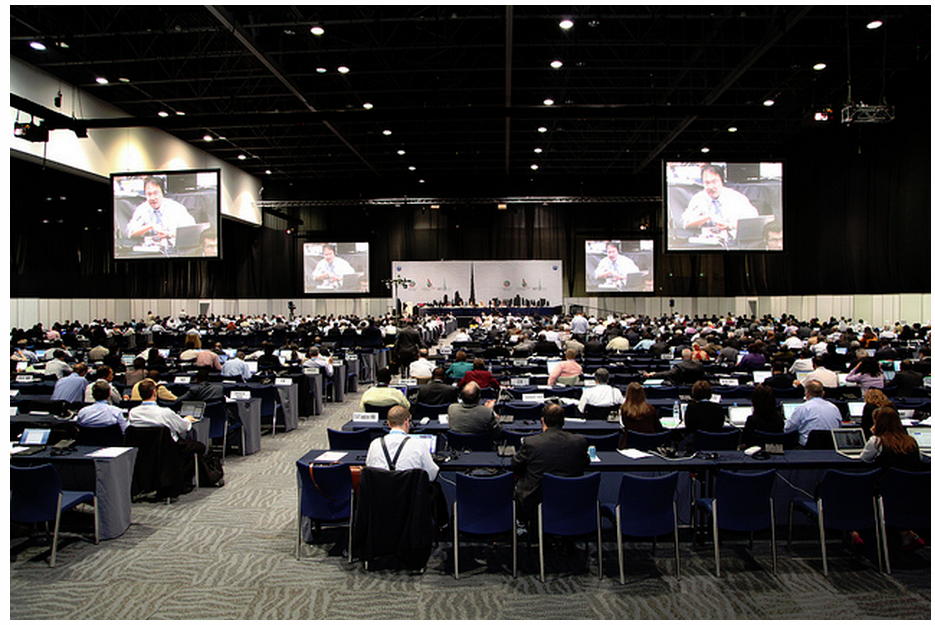The UN fought the Internet — and the Internet won
December 14, 2012

Main Conference room at Day 4, WCIT 2012, Dubai, UAE (credit: ITU)
For the last two weeks some of the planet’s most oppressive regimes have faced off against some of the most powerful Internet advocates in an effort to rewrite a multilateral communications treaty that, if successful, could have changed the nature of the Internet and altered the way it is governed, Forbes reports.
On Thursday night that effort failed, as a U.S.-led block of dissenting countries refused to sign the proposed updates, handing the United Nation’s International Telecommunication Union a humbling defeat.
The United States, which framed its dissent as defending “the open Internet,” was joined by more than 80 other countries, including Australia, Canada, Chile, Costa Rica, the Czech Republic, Denmark, Egypt, Finland, Greece, Italy, Japan, Kenya, the Netherlands, New Zealand, Poland, Portugal, Qatar, Sweden and the United Kingdom.
Kieren McCarthy, who runs the internet consultancy dot-nxt, has published ITU planning documents that would otherwise have been kept out of sight. He criticized the conduct of the meeting: “Attendees were stunned to find a conference style and approach stuck in the 1970s,” he said, according to The Guardian.
Writing on the dot-nxt site, he said: “A constant stream of information was available only in downloadable Word documents; disagreement was dealt with by increasingly small, closed groups of key government officials; voting was carried out by delegates physically raising large yellow paddles, and counted by staff who walked around the room; meetings ran until the early hours of the morning, and ‘consensus by exhaustion’ was the only fall-back position.”
Statement from Dr Hamadoun I. Touré, Secretary General of the ITU. Dubai, 13 December 2012.